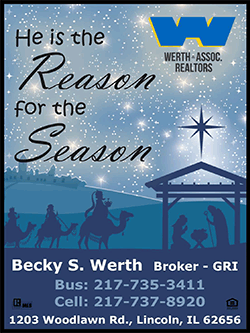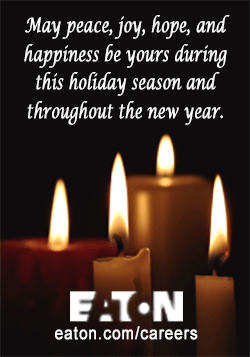|
 Since
it begins the day after Christmas, one may get the initial
impression that Kwanzaa is a religious holiday. This is not the
case, however, as Kwanzaa is a cultural holiday, created to
celebrate African culture in the United States and throughout the
world. Since
it begins the day after Christmas, one may get the initial
impression that Kwanzaa is a religious holiday. This is not the
case, however, as Kwanzaa is a cultural holiday, created to
celebrate African culture in the United States and throughout the
world.
The history of Kwanzaa is an interesting one. One cannot understand
the significance of what Kwanzaa is without understanding why it was
created. This cultural holiday was created in 1966 by Dr. Maulana
Ron Karenga. According to the National Museum of African American
History and Culture (NMAAHC), Dr. Karenga created Kwanzaa in the
immediate aftermath of the Watts Riots. The Watts Riots occurred in
1965 after an African American driver was pulled over by police.
After the altercation became violent, community members report
seeing a police officer hurt a pregnant woman. This resulted in six
days of civil unrest. Karenga stated he created Kwanzaa to “give
Blacks an opportunity to celebrate themselves and their history,
rather than simply [imitating] the practice of the dominant
society.”
Dr. Karenga modeled Kwanzaa after traditional African harvest
festivals. The word Kwanzaa comes from a Swahili phrase “matunda ya
kwanza,” meaning “first fruits.” According to history.com, the extra
“a” was added to the name to accommodate the seven children who were
at the first Kwanzaa in 1966. Each of the seven children wanted a
letter to represent. The celebration of Kwanzaa itself centers
around seven principles, also called “Nguzo Saba.” Those principles
are umoja (unity), kujichagulia (self-determination), ujima
(collective work and responsibility), ujamaa (cooperative
economics), nia (purpose), kuumba (creativity), and imani (faith).

In addition to the seven principles of Kwanzaa, there
are also seven candles that are lit over the course of the seven-day
holiday. The seven candles are held in a special candle holder
called a Kinara. There is a black candle in the middle with three
red candles on the left and three green ones on the right. The black
candle in the center is lit first, representing the principle of
umoja. After the first candle, they are lit in alternating fashion
left and right, starting inward and working outward. According to
the African American Cultural Center, “the black [candle] is
centered and lit first to stress the priority of the people.” The
red candle is lit after to signify the importance of struggle. The
green candle is lit third to represent the good future that is
created in “righteous and relentless struggle.”

The official Kwanzaa website shares some of the
things that are done during Kwanzaa celebrations. This includes
“feasts (karamu), music, dance, poetry, narratives” and ending the
holiday with a day dedicated to reflecting on and recommitting to
the Nguzo Saba. While there is no set menu to celebrate Kwanzaa,
many families cook traditional African, Caribbean, and South
American dishes. Where someone grew up contributes a lot to the
items they choose to cook for the holiday. The sixth day of Kwanzaa
is celebrated with a large feast called “Karamu.” In addition to
food, dancing, poetry, etc., reflection is also a very important
part of Kwanzaa. The NMAAHC states that, during Kwanzaa, “families
and communities come together to share a feast, to honor the
ancestors, affirm the bonds between them, and to celebrate African
and African American culture.” For more on the seven principles of
Kwanzaa, as well as suggestions of what to practice each day, you
can find more information here. In an
interview with Roland Martin, Dr. Karenga went into further detail
about Kwanzaa and its cultural bases. Dr. Karenga was asked why he
chose to place Kwanzaa immediately after Christmas. Many people who
don’t know any better may simply believe Kwanzaa to be “black
Christmas.” In his answer to why he chose December 26th to January
1st, Dr. Karenga stated that his decision, like all decisions he
made when creating Kwanzaa, was based on African culture. “It’s
based on the Zulu “First Fruits,” or harvest celebration called
Umkhosi, and it straddles the year in December and January.”
[to top of second column] |

Dr. Karenga went further with his answer, stating
that when he says something is African, you can believe him. He can
demonstrate the cultural grounding of his choices, showing that they
are authentic. Dr. Karenga stated another reason he chose to have
Kwanzaa when he did is because the end of the year and beginning of
the next is a great time for reflection. “Part of Kwanzaa is
reflection,” Dr. Karenga stated, “remembrance, reflection, and
recommitment.”
During the same interview, Dr. Karenga was asked a very interesting
question regarding Kwanzaa and whether or not it should be
celebrated by other cultures. Dr. Omekongo Dibinga stated that he
was sharing information about Kwanzaa, and specifically its seven
principles, with a white woman. She really started considering also
celebrating the holiday, and Dr. Dibinga asked the question of
whether or not people of other cultures and backgrounds should
celebrate Kwanzaa since it is specifically an African American
centered holiday. Dr. Karenga said the question should be rephrased.
The question should not be can they celebrate Kwanzaa. The question
should be can they celebrate black people and their history in
America. If someone is willing to put themselves aside and make the
celebration of African culture the central part of their
celebrations, then they should be able to celebrate it just the
same.
Kwanzaa may be a recent holiday, but its cultural history goes back
hundreds, if not thousands, of years. The holiday itself is
important for people of African heritage all over the United States
and the world, and the principles it shares are universally
significant for people of all races. There is a quote from Dr.
Karenga that really helps summarize Kwanzaa and its significance to
the world. “Indeed, this is our duty: to know our past and honor it;
to engage our present and improve it; and to imagine a whole new
future and forge it in the most ethical, effective and expansive
ways.”
[Matt Boutcher]
References
1.
https://nmaahc.si.edu/kwanzaa#:~:text=
Kwanzaa%20was%20created%20in%201966,communal%20and%20non%2Dheroic
%20holiday.
2.
https://www.history.com/news/5-things
-you-may-not-know-about-kwanzaa
3.
https://africanamericanculturalcenter-
la.org/lifting-up-the-light-that-lasts/
4.
https://www.officialkwanzaawebsite.
org/img/index/Kwanzaa--ABrief
Description2016.jpg
5.
https://nmaahc.si.edu/explore/stories/
seven-principles-kwanzaa
6.
https://www.youtube.com/watch?v=hEp7Sv
Cgm_I
7.
https://www.csueu.org/news/archive/
qa-with-dr-maulana-karenga
|
Read all the articles in our
new
2023 Home for the Holiday magazine
|
 |